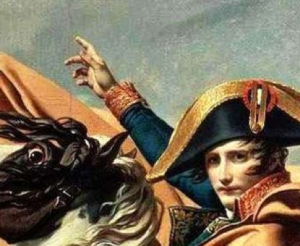I’ve recently started reading Andrew Roberts’ new biography of Napoleon titled Napoleon: A Life. For those considering picking it up – be warned: it’s quite an undertaking. At just under 1000 pages, the book is long and very detailed. Said differently: if you ever wondered exactly how many cannon Napoleon captured in each one of his battles, this is the book for you.
Most of the intricate details found in the book come from the 33,000 somewhat recently published letters written by Napoleon that have been archived for public viewing by the Fondation Napoléon in in Paris.
Going in, I didn’t know much about the great French leader, but, so far (I’m about half way through) three really interesting trends have emerged.
- Napoleon was a big time workaholic
Whenever I read a biography of a famous person, I always try to distill what made them so successful. What about them made them so special? In the case of Napoleon, it was, first and foremost, his work ethic. This guy was constantly working. He worked so hard, that he, in some ways, reinvented the role of a military commander.
Unlike some of the older generals (who Napoleon often faced) that would watch the battles from a safe distance, Napoleon was always on horseback riding around. His attention to detail was so complete that he would be constantly checking on each battalion to see exactly where they were, how many soldiers they had, the condition of their equipment, and how much ammunition they had. He wanted to see for himself that everyone was in position, well-equipped and ready to fight. At a few points in the book there are references to Napoleon riding so hard that he would drive his horses to exhaustion and occasionally he would not be able to walk after spending so much time on horseback.
Napoleon also took pride in the fact that he could personally do any job in the army. Napoleon could mix his own gunpowder and forge his own cannon balls if he had to. Basically – this guy knew war at the “doing” level in every position – and he was beyond obsessive when it came to details.
- Napoleon ignored all the rules
Early in his career when he was serving as an artillery officer in the French army, Napoleon deserted his post in search for more upwardly mobile positions. Napoleon was basically the 18th century equivalent of someone who hops between jobs to get promoted – and he got promoted very quickly. He became a General at just 24 years old.
One of the sub-plots to Roberts’ book is the relationship that Napoleon had with the French governing body called the Directory. Napoleon relied on the Directory for supplies and troops, and as Napoleon grew more successful, he really started throwing his weight around to get what he wanted, often threatening to resign.
Somewhat early in his career, while he was still in his 20’s, Napoleon even went so far as to ignore the Directory all together and unilaterally sign treaties with foreign governments. It seemed that Napoleon always had a keen sense for his leverage against the government of France and was pushed the boundaries at every stage with regard to what he was allowed to do.
On top of all of that, Napoleon was a prodigious user of propaganda, constantly exaggerating his success. He routinely lied about the number of casualties on both sides of his conflicts (under-stating his own, and over-stating the enemies).
- Esprit de corps
One of the most interesting parts of the book for me is Napoleon’s secret weapon: morale. This was a really big thing for Napoleon, he believed that the secret to success in a military campaign was ¾ “esprit de corps” and ¼ the number of troops and equipment you had.
It seems that caring for his troops is one of the things that made Napoleon most unique as compared to other military leaders of the time. His caring manifested itself in many ways:
- He often remembered the names of his soldiers after only meeting them briefly (Napoleon had a fantastic memory)
- Napoleon spent time with his wounded soldiers and ensured their prompt medical treatment – encouraging them to get back on the battlefield quickly
- Napoleon encouraged the development of badges, medals and awards for the soldiers who heroically in battle. He even allowed different Regimens to stitch slogans on their uniforms to help build a common identity (a practice that lives on in many armies today)
- Much more than other generals at the time Napoleon made sure that his soldiers were fed and well clothed – demanding resources from the Directory to ensure the comfort of his soldiers
- Napoleon would publicize statistics about the success of his army (again – usually exaggerated) and compare the success of his armies to those of antiquity, inferring that his fighting force was the most powerful of all time (which, at the time, was probably true).
All of these elements came together to form one of Napoleon’s greatest skills: the ability to make ordinary men feel like they had the ability to change the course of history. The soldiers in his army truly felt like their life and, if necessary, their death was tied to something much larger than themselves.
However, Napoleon wasn’t so kind with all his soldiers. He very harsh with the “middle managers” of his army who he relied on to share his same attention to detail. “Severe to the officers, kindly to the men” was his mantra.
I’m looking forward to the second half of the book – I’ll let you all know what I find and save you the time reading this enormous tome.
